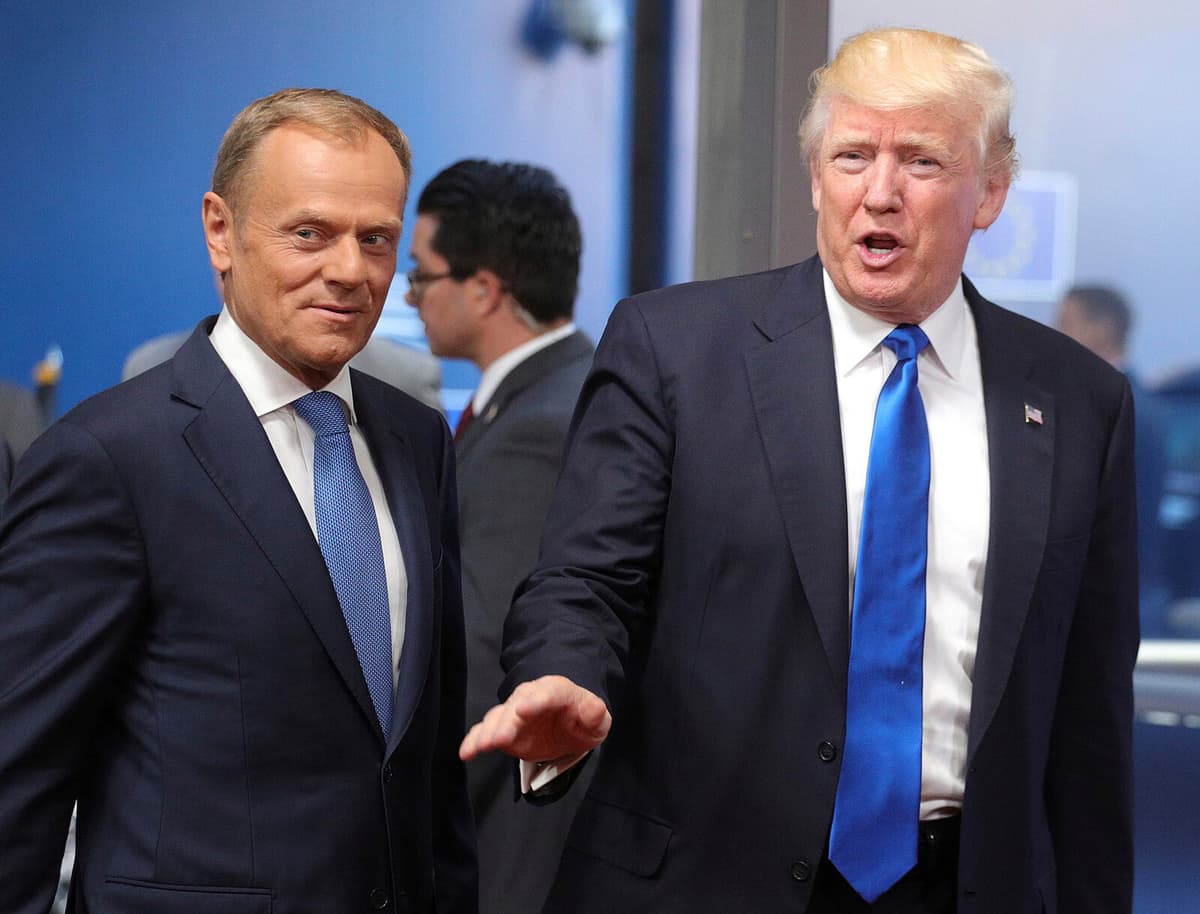Donald Tusk and Donald Trump were in the spotlight as early as 2017, when one was the EU Council President and the other the President of the USA.
Now, the same gentlemen are once again highly topical. On January 20, Trump will be sworn in as President of the White House. And from Wednesday, Tusk will be a central figure, as his Poland takes over the presidency of the EU Council of Ministers.
Given the focus will be on Russia's war in Ukraine, not least considering Trump has promised a quick end to the war – something many fear will in practice mean an end to American support for the ruling powers in Kyiv.
All is Security
For Poland, the war is highly tangible. Millions of Ukrainians have sought refuge in the country, and both Russian and Ukrainian rockets have fallen on Polish soil. Russia and Belarus have also exerted pressure with a completely different kind of weapon, by luring migrants from Africa and Asia who are then pushed towards the Polish border.
All of this has contributed to Poland formally declaring security in seven different areas as key words for its presidency.
It primarily concerns external security – border protection and defense – but also security for the economy, energy, health, and food. Migration policy is referred to as internal security, while the environment falls under the concept of civil security.
Can he handle Trump?
Prime Minister Donald Tusk is one of Europe's most experienced leaders, with significant influence among EU conservative leaders.
He is seen as strongly pro-EU – but has not shied away from standing up for a more conservative view on both migration and agricultural policy.
The 67-year-old carpenter's son from Gdansk will also be particularly weighty at the moment – given the leadership vacuum caused by the political disagreement in both Germany and France.
Poland is now being treated as an authority when it comes to Ukraine and Russia, with our experience and our history, notes Tusk ahead of the presidency.
Even in relation to the USA, Tusk has a strong position, not least since Poland has emerged as the NATO country that will clearly spend the most on its defense: up to 4.7 percent of GDP by 2025.
"Poland has done its homework on issues that Trump cares about. One Donald may very well receive another with open arms," writes Marta Prochwicz Jazowska from the think tank ECFR in an analysis.
The presidency of the EU Council of Ministers usually involves a lot of negotiations to reconcile different countries' opinions on various legislative proposals. Since the new EU Commission has just taken office, there are not many proposals to handle at the moment.
Poland will still inherit, among other things, the attempts to agree on new driver's license regulations – which for Sweden's part is mostly interesting when it comes to the future of A-traktors – as well as EU support for the defense industry (abbreviated Edip).
Poland also hopes to open the first real negotiations with Ukraine on future EU membership during the spring. Greater emphasis will also be placed on increased sanctions against Russia.
Here are some key dates during Poland's presidency of the EU Council of Ministers:
9–10 January: EU Commission on site in Warsaw
3 February: Informal EU summit in Belgium
23 February: Federal elections in Germany
20–21 March: Ordinary EU summit in Brussels
2–3 April: Informal EU foreign ministers' meeting in Warsaw
4 May (preliminary): Presidential election in Poland
7–8 May: Informal EU defense ministers' meeting in Warsaw
16 May: Summit within the European Political Community (EPC) in Albania
24–26 June: NATO countries hold summit in The Hague
26–27 June: Ordinary EU summit in Brussels






